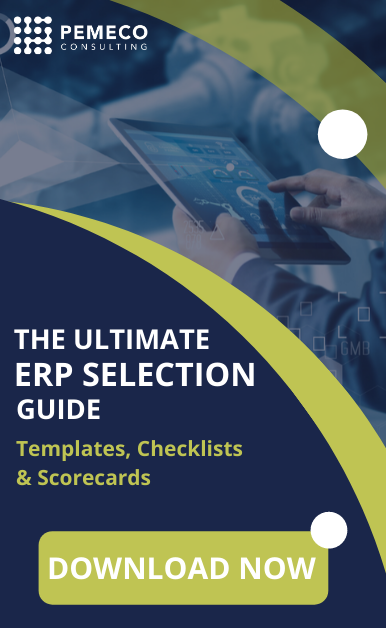Businesses today tend to look at ERP as a solution to whatever ails them. Unfortunately, this mindset often leads to disappointment. Learn how our business forebearers designed ERP as part of a broader organizational solution set.
It doesn’t matter how fancy your ERP system is. It doesn’t matter how closely the system’s capabilities match your company’s needs. It doesn’t matter that the ERP system is SaaS, comes with the latest flavors of business intelligence, or can be used by mobile workforces on their smartphones. No, none of this matters if the system isn’t implemented correctly.
This article – provided by ERP vendor SYSPRO – outlines how enterprise business software can help manufacturing companies implement Lean fundamentals.
With all of the recent marketing hype surrounding SaaS ERP, you might be surprised to learn that it only commands 7% of the 2011 global ERP market share by software sales. According to a July, 2011 report by Gartner Research, this translates to a roughly $1.7 billion (U.S.) slice of the $24.3 billion ERP software pie.
The current economic climate is causing many organizations to rethink their ERP projects – whether selection, implementation or optimization. Many businesses are now hesitating because they’re no longer sure that it’s in their best interests to fund the projects or to divert precious human capital resources.
If the last few years have taught us anything about business, it’s that the successful companies adapt to tempestuous market shifts. And, there have been plenty of recent events that have given companies opportunities to distinguish themselves in this regard: the Great Recession, a choppy recovery, Japanese supply shortages, rising Chinese labor costs and, now, a market correction.
Once again, the folks at Focus.com have stimulated a timely conversation – this time about IT project management credentials. Caty Kobe, a Community Manager at Focus.com, asked “Does a project manager need to have an IT background?”.
Really, now. Is this just another example of an author using an alarmist title for shameless promotion? Or, is there actual substance behind my bold claim that ERP contract negotiations – which, by the way, are fully completed before ERP implementation even starts – can actually be a key driver of implementation success?
If your business is like most, it’s probably paying between 18% and 25% of its ERP licence fees annually for maintenance and support. To put this in perspective, a mid-sized business paying $300,000 in license fees would see a yearly maintenance bill of about $54,000. The big question is: “Is this business getting $54,000 of value out of its maintenance contact?”.
Canadian manufacturers and distributors are increasingly turning to ERP to help them improve their fortunes, especially in the face of low-cost foreign competition and the high Canadian dollar.

